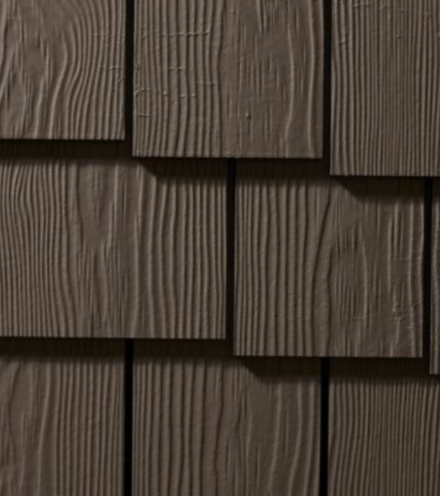Search Engine Optimization. SEO. As a home builder, I’m guessing your first exposure to this was the SPAM comment you got through the contact form on your website. It may have looked something like this:
“Hi, I’d really like it if you outsourced your SEO to us. I see some errors on your website and you could be ranking #1 for the best keywords. Please reply promptly to XYZ@email.com.”

Over the years, SEO has evolved quite a bit. It’s not the voodoo magic it appeared to be 10-15 years ago. There are specific ranking factors and there are several things you can do to improve your search engine optimization and your Google rankings. Let’s look at five of the biggest factors today.
Note: Keep in mind, there are hundreds of ranking factors, so I’ve boiled them down for the article to keep things simple and effective.
Key #1: Content
Today, content heavily influences your home builder SEO. Think about it. If you don’t have a website page with content or a blog post, how can you expect to optimize anything for a keyword you want to get found for? Content allows you to target a specific keyword and start to rank for that.
As an example, let’s say you want to rank for the phrase “Seattle custom home builder”. In order to properly optimize for this keyword, you need a page full of content. This might be your home page, your about us page or even a blog post.
Here’s an analogy that will help. Think of your website like a planet. The bigger a planet is, the more gravitational pull it has, right? Well, the same thing happens with websites. The bigger the website, the more traffic and visitors it pulls towards it.
How do you get a bigger website? Each page or blog post you create on your website adds to its size. So a website with 1,000 pages has 1,000 opportunities to rank for different keywords and phrases, whereas a 10 page website only has 10 opportunities.
Another way to think about it is this: let’s say each page on your website brings in 5 visits per month. The more pages you have, the more traffic you’ll get.
Today, our website has over 2,000 blog posts and several hundred pages. When we started, we had about 50 pages and no blogs. Our traffic has increased from 600 per month to over 11,000 per month.
So, content is extremely important in terms of improving your SEO!
Key #2: Keywords
Okay, let’s talk keywords. Today, keyword stuffing is a big no-no. You want to pick 1 target keyword for each page on your website and optimize that page completely.
Here’s how to do it. Again, let’s say your keyword for your About Us page is “Seattle Home Builder”. You want to optimize a few key areas:
1. Page Title
2. URL
3. Header (H1 tag)
4. Body Copy
5. Image File Name
6. Image Alt Text
7. Meta Description
What this does is tell Google what the page is about. We created a quick checklist that walks through each of those items above in more detail. You can download it here.
The takeaway is that each page has one keyword focus and you’ll place that keyword in targeted areas so that you’re helping Google identify what the page is about.
Of course you need to make sure your page IS actually about that keyword. Otherwise, visitors will come to your site and leave immediately. Over time, this will tell Google that the content isn’t a match. Today, it’s all about helping your visitors with great content and helping Google bring the RIGHT visitors to you.
Key #3: Links
Let’s talk links. Links are actually one of the most powerful ranking factors out there. Before we get into the power of links, let’s define them first.
An inbound links (or backlinks) are links from another websites back to yours. An example of an inbound link would be a partner company that has your logo on it and a link back to your website. Or maybe you wrote an article for the local newspaper and they linked to your website in their digital version.
An internal link is a link from one of your own website pages or blog to another one of your website pages or blog posts.
Inbound links (from other websites) tell Google that your website is important. The more inbound links your website has, the more powerful your website, and the higher you’ll rank. I’m keeping this super simple for the purpose of this blog, but it’s basically a popularity contest.
Google relies on the data to let it know which sites are important. So, if 1,000 other websites link to yours and only 100 link to your competitor, overall, your site will rank much better.
Internal links also help improving ranking. If you write a blog post and link back to your Communities page, that will help your Communities page. If you create a new floor plan page and link to a similar floor plan page, it will help that similar floor plan page rank.
Having a good system of relevant internal links is extremely important, but so is looking for opportunities to get other websites to link back to you. Don’t ignore links!
Key #4: Social
Is social media really important for SEO? I thought those were different! Not today my friend. Today, social signals are a pretty powerful SEO factor.
Circling back to content, we talked about how links help your content rank. The same goes for social signals. When a blog post gets shared on Facebook, Twitter or another social network, it tells Google that post is important. So, if your post gets a few hundred shares, its ranking will improve.
If you’re interested in the data to support this, check out Moz’ report.
At the end of the day, social media is extremely important to helping your website and content to rank higher.
Key #5: Page Factors
There are many page factors that can help your SEO. What are page factors you ask? Here are a few:
- Page Speed
- Content Length
- HTTPS (secure site)
- Readability
- Structured Data
- Open Graph markup
- Uniqueness
There are entire books that talk about these factors, but let’s keep it simple. How can you make some major improvements to your pages to ensure your SEO is in good shape?
Reduce your image size to the absolute minimum you need to display them. This means if you are displaying an image that is 800 pixels wide, don’t upload it to your website at 5,000 pixels and re-size it. Re-size it before you upload it. Photos are the biggest threat to a slow page speed. However, as a builder, photos are critical, so just make sure you re-size your photos before uploading.
Get an SSL certificate and create a secure site. Google has indicated this will help improve your ranking. SSL is common for an e-commerce site where you are putting in credit card info, but home builders don’t typically have this, so it can instantly help bump you past your competition.
Make sure your content is unique. Please don’t copy anyone else’ content. This will hurt your rankings in a hurry. All your content should be created custom.
Wrap Up
SEO is actually pretty complicated, but if you just focus on these five areas, you’ll blow by your competition. You don’t need to be an SEO expert to make smart adjustments and additions to your website.


Spencer Powell is the Inbound Marketing Director for Builder Funnel, a marketing agency specializing in helping builders generate more leads and sales from their websites. Spencer helps progressive builders install automated marketing systems that work 24/7 online to produce more home sales.
When he’s not generating leads for builders, you’ll find Spencer playing doubles volleyball, at the gym or at Chipotle.
Connect with Spencer on LinkedIn or Twitter or send him a note via email: spowell@builderfunnel.com




